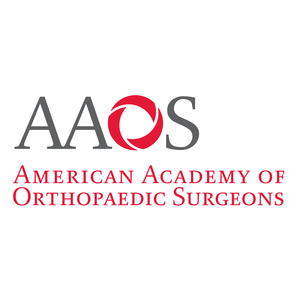The growing trend of youth sports specialization
Data finds focus on single sport, largely driven by parents, leads to injury and burnout
NEW ORLEANS, March 6, 2018 /PRNewswire-USNewswire/ -- Youth sports has experienced a paradigm shift over the past 15 to 20 years. Gone are the days filled with pick-up basketball games and free play. Kids are increasingly specializing in sports.
New research from two studies presented at the 2018 Annual Meeting of the American Academy of Orthopaedic Surgeons (AAOS) demonstrated the substantial psychosocial impact parents can have on their children's sports experience, as 54.7 percent of parents encouraged their children to specialize in a single sport. Additionally, the number of hours of vigorous activity was found to be a bigger risk factor for injury than specialization. For girls, the number of hours per week of activity is a stronger predictor of injury than sports specialization. For boys, both specialization and the number of hours per week were predictive of injury.
Sports specialization in youth is defined as engaging in a sport for at least three seasons a year at the exclusion of other sports, and early sports specialization occurs in children under the age of 12. Although physical activity is beneficial for overall health, sports specialization can increase the risk of injury and burnout, and decrease enjoyment due to excessive training. It also decreases an athlete's ability to cross train and gain physical benefits from other sports. In fact, the AAOS and American Orthopaedic Society for Sports Medicine just launched a new campaign called OneSport™ to help address this and prevent overuse injury.
A new study "Quantifying Parental Influence on Youth Athlete Specialization: A Survey of Athletes' Parents," set out to uncover extrinsic influence from parents and assess parental influences placed on young athletes to specialize.
The team of researchers surveyed 201 parents of pediatric patients in the practice of the study's lead author, Charles A. Popkin, MD, assistant professor of orthopaedic surgery at Columbia University Medical Center, and assistant attending physician at New York-Presbyterian Hospital.
Survey findings included:
- 57.2 percent of parents hoped for their children to play collegiately or professionally.
- One-third of respondents stated their children only played a single sport, and 53.2 percent had children who played multiple sports, but had a favorite sport.
- Only 13.4 percent had children who balanced their multiple sports equally.
- Additionally, approximately 80 percent of parents who hired personal trainers for their children were more likely to believe their children held collegiate or professional aspirations, and those children who received outside skill development had a higher injury risk due to the number of hours spent training and playing.
"Culturally, we have found that parents have unrealistic expectations for their children to play collegiately or professionally and as a result, they invest in private lessons, trainers or personal coaches to help their kids," explains Dr. Popkin. "When you're investing this amount of time and resources, there can be unwritten, indirect pressure from parents to specialize."
In the future, the researchers of both studies hope to raise awareness to address the factors, dangers and myths associated with youth sports specialization. Additionally, it's important to analyze the data and develop common sense recommendations of how much is too much in certain children to reduce injuries and burnout, and allow children to enjoy the benefits associated with a lifelong involvement with sports.
Another new study "Injury Risk Associated with Sports Specialization in Youth," analyzed data from the Growing Up Today Study, which focused on the children of registered nurses. Analysis of 12,000 youth, ages 9-14, was conducted over a four-year period (1997, 1998, 1999, 2001), in addition to the 2004 data on injury history completed by their mothers.
"It's important to note that other studies on sports specialization have been retrospective, in that they look at kids who are injured, and then asked them if they specialized and how many hours they were playing," explained lead author of the study Mininder Kocher, MD, MPH, associate director, division of sports medicine at Boston Children's Hospital and professor at Harvard Medical School, department of orthopaedic surgery. "Correlating this data to their injury leaves room for potential bias. Our study took a future-forward approach by having mothers, who are registered nurses, record their children's sports and activities, the number of hours a week and detailing their children's injuries. Therefore, the quality and depth of data are much greater."
In addition to determining whether time spent and/or sports specialization lead to a greater risk of injury in boys and girls, the study also found that early sports specialization in baseball and cheerleading/gymnastics showed an increased risk of injury in boys. For girls, early sports specialization in running, swimming, volleyball and cheerleading/gymnastics were all independently predictive of developing an injury in girls.
The increased phenomenon of sports specialization begs the question of who is driving this trend.
2018 AAOS Annual Meeting Disclosure Statement
The American Academy of Orthopaedic Surgeons
With more than 38,000 members, the American Academy of Orthopaedic Surgeons (AAOS) is the world's largest medical association of musculoskeletal specialists. The AAOS provides education programs for orthopaedic surgeons and allied health professionals, champions and advances the highest quality musculoskeletal care for patients, and is the authoritative source of information on bone and joint conditions, treatments and related issues.
Visit AAOS at:
Newsroom.aaos.org for bone and joint health news, stats, facts, images and interview requests.
ANationinMotion.org for inspirational patient stories, and orthopaedic surgeon tips on maintaining bone and joint health, avoiding injuries, treating musculoskeletal conditions and navigating recovery.
Orthoinfo.org for patient information on hundreds of orthopaedic diseases and conditions.
Facebook.com/AAOS1
Twitter.com/AAOS1
Instagram.com/AAOS_1
SOURCE American Academy of Orthopaedic Surgeons
Related Links
WANT YOUR COMPANY'S NEWS FEATURED ON PRNEWSWIRE.COM?
Newsrooms &
Influencers
Digital Media
Outlets
Journalists
Opted In





Share this article